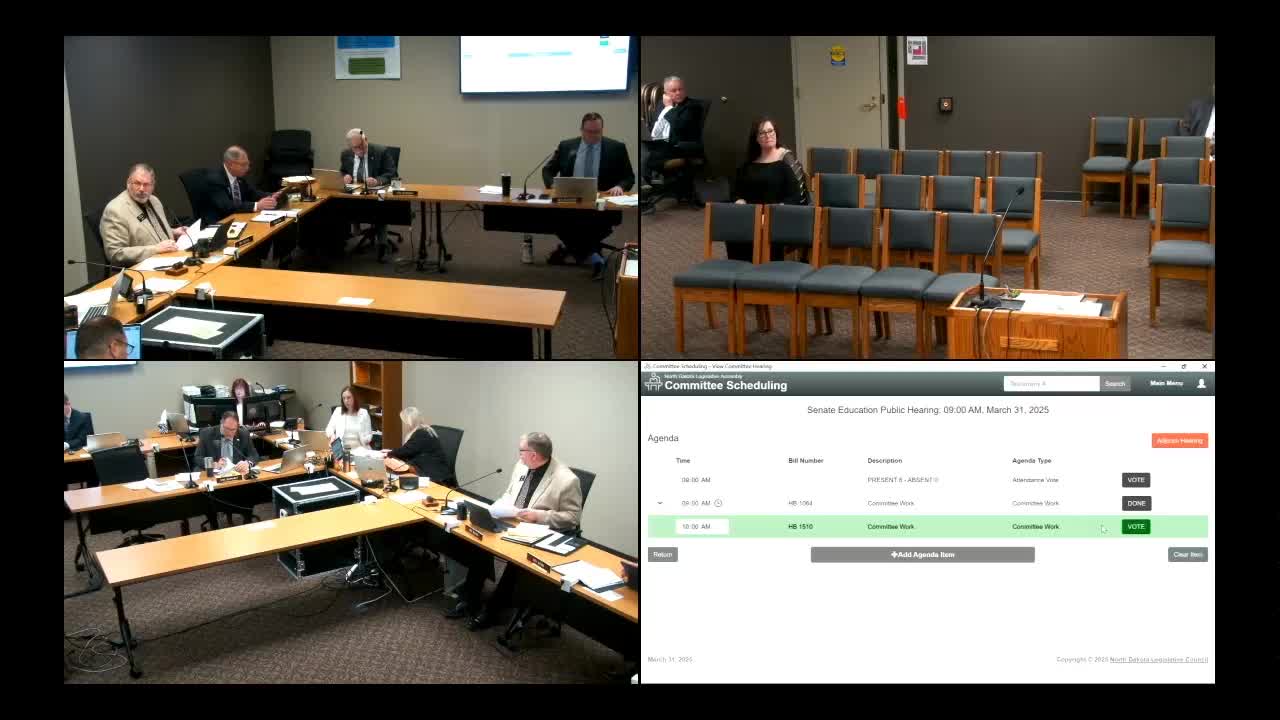Committee hears proposal to seed immigration law clinic at UND Law with $400,000 appropriation; members ask for reporting and guardrails
Get AI-powered insights, summaries, and transcripts
Subscribe
Summary
Senators discussed a proposed $400,000 appropriation to the University of North Dakota School of Law to start a clinic providing employment‑based immigration legal services and training; members asked for reporting requirements, time limits and clarifications on scope and priority for North Dakota employers.
Senators debated House Bill 1600, a proposal to appropriate $400,000 to the University of North Dakota School of Law to establish a full‑time staff attorney and clinic focused on employment‑based immigration law. Committee members discussed program scope, sustainability and oversight but did not vote; the bill was set aside for redrafting and staff were asked to prepare a reporting requirement.
Supporters said the clinic would fill a statewide gap in employment‑based immigration legal services and provide hands‑on training for law students. Committee testimony indicated the appropriation would fund four years of initial operation, including a clinic faculty salary, software and training modules. Legal services from the clinic would be offered to employers at reduced rates but not for free; employers would still be responsible for USCIS filing fees.
Senators raised several issues for the draft bill: whether the clinic would focus on employer‑side services only (testimony said it would), how to avoid using limited state funds to create a single contractor position, whether the clinic could realistically move long federal immigration cases forward, and whether the appropriation should instead be part of UND’s budget process. Several senators suggested adding a reporting requirement and a time limit on the funded period so the Legislature could evaluate the clinic’s outcomes and sustainability.
Committee members suggested asking the law school to submit periodic reports to the Legislature describing goals met, operational metrics, fees charged, number of cases handled (the bill text would limit cases to no more than 60), and whether North Dakota businesses were prioritized. Legislators discussed a four‑year review timeline (two bienniums) to give the clinic time to recruit staff, establish curriculum and demonstrate outcomes before future funding decisions.
The committee agreed to pause further action on the bill while counsel drafts a reporting requirement and timeline for committee review; no committee vote on final passage occurred during this hearing.
